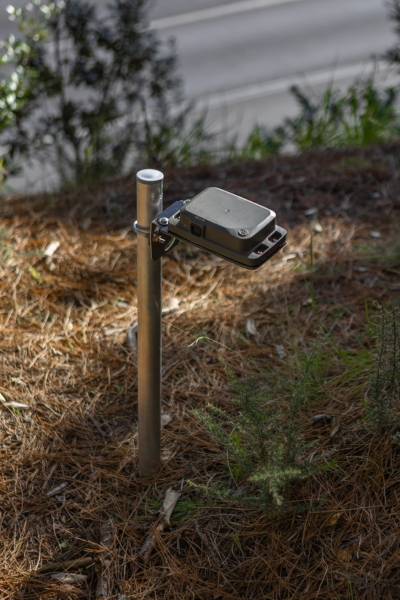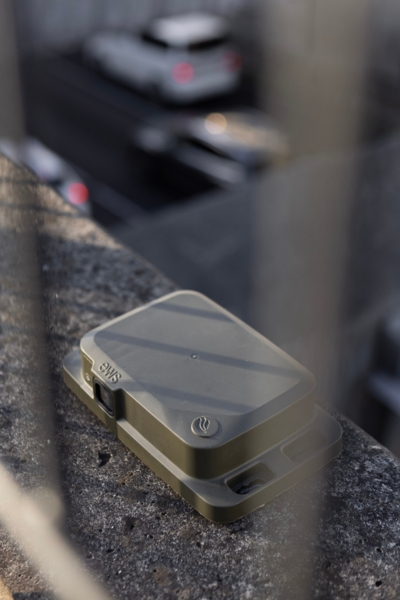Adroit Expands into Geotechnical Monitoring Through Partnership with Aussie Leader EWS
Adroit is excited to announce a New Zealand distribution agreement with EWS, a specialist in IoT equipment for the Australian mining, geotechnical, hydrological, environmental and construction industries.

EWS was founded in 2014 from grassroots in Western Australia where harsh environments and isolated sites meant data capture was difficult and incredibly time-consuming. EWS’s development of outstanding, high-quality, IoT sensor equipment has made the company a global leader in remote monitoring technology and the preferred option for the world’s largest mining companies, Government agencies and engineering firms.
Adroit CEO Blair Stewart says that the EWS partnership provides the company with an array of field-tested equipment unavailable in New Zealand until now.
EWS has an outstanding range of products backed by an incredibly informed development and support team.
We’re very impressed with how the equipment performs and how easy it has been to integrate it into the Adroit product range. And the fact that it has been made to perform in some of the harshest environments in the world means the quality and durability is outstanding,

EWS’ strength and key philosophy has always been to maintain an ‘Industry to Tech’ approach, meaning that all products are rooted in solving real-world issues confronted by relevant industry professionals as opposed to technology manufacturers dictating to industry.
Their highly experienced team of hydrographers, water resource engineers, meteorologists, and geotechnical and environmental engineers form the concepts and ideas and convey them to the company’s designers, electronic, firmware and software engineers to make the product range a reality.
And that practicality comes right from the top at EWS. Managing Director and Founder, Brad Phillips comes from a monitoring background, having worked as a hydrographer on projects across remote areas in Western Australia, and also in New Zealand for Taranaki Council.
Liam Jeffares, Global Business Development Manager says the mining sector is where EWS really got started in remote monitoring.
The mining industry is huge, and environmental monitoring is vital for their operation. Tailings storage facility management and monitoring is a global issue and is regulated now by a global body. So that’s another sector where monitoring is of critical importance and where we’ve really learned our craft.
“Now, over the last couple of years, State and Federal water agencies across Australia, have begun really stepping up the monitoring for water resources, groundwater and surface water, and realising how important it is to monitor that asset. And recently they’ve begun pushing forward with the automation of their monitoring networks,

As it is in New Zealand, the tried-and-true approach to water monitoring has been by grab sampling, but Jeffares says there is a real desire to automate the measurement process and get accurate results in real-time.
“Recently EWS won probably the largest and first rollout of its kind last year, with Water New South Wales upgrading around 5,000 of their monitoring bore across the state to help regulate water usage. This all ties into licensing and laws around how much water you’re allowed to extract for use for agriculture or irrigation purposes or whatever it might be.
We’re now having those conversations now across every other state in Australia, and we’re seeing it worldwide as well. Obviously, New Zealand’s water is a huge issue and that’s now starting to gain some traction there as well at the regulation level.
Jeffares is a Kiwi himself, having started his career with Geotechnics, a subsidiary of Tonkin & Taylor, in Auckland, working on the Waterview Tunnel project – manually reading around 300 or so groundwater boards around the tunnel alignment, to make sure that the dewatering process wasn’t drawing down the water table, which can affect surrounding infrastructure, surrounding houses and buildings. That led to an opportunity to join EWS in Australia and work with digital remote sensor installations.
Now he’s pleased to be helping bring that technology back to New Zealand through the team at Adroit.

“I was very impressed by what Adroit is doing. It’s a very slick operation. And the backing of Spark in New Zealand is huge because that really helps bring it to the forefront of the public and for them to be able to put forward the importance of monitoring.
He also says that Adroit and EWS have already developed a great rapport.
“Adroit has a really knowledgeable and switched-on team, so we easily integrated our products into the Adroit cloud platform – our technical teams put their heads down and got that all sorted before we even had any agreement in place or anything, and it worked really, really smoothly.
“Environmental monitoring is important across a whole range of different sectors, whether it’s construction or government or environmental or agricultural. And I can only see that growing as New Zealand pushes for a more sustainable operation as a country, and New Zealand is generally at the forefront of that sort of thing. So, it’s an exciting time to be involved in monitoring,” he said.
